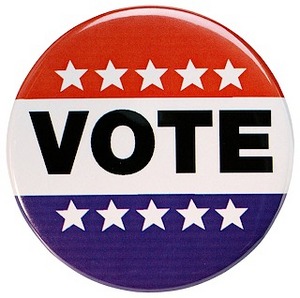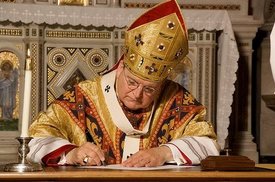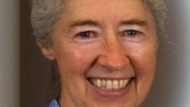 Last week Nancy Davis, 59, drug smugglers wanted her pickup truck and killed her for it in Mexico. What Nancy and her husband, Sam, did was to build churches and orphanages but they found themselves trying to out-run drug runners with assault rifles. Nancy and Sam Davis have been missionaries in Mexico for the last 38 years.
Last week Nancy Davis, 59, drug smugglers wanted her pickup truck and killed her for it in Mexico. What Nancy and her husband, Sam, did was to build churches and orphanages but they found themselves trying to out-run drug runners with assault rifles. Nancy and Sam Davis have been missionaries in Mexico for the last 38 years.
Category: Faith & the Public Order
Egypt leads the way to political overhaul
Image via Wikipedia
AsiaNews.it published this editorial today where the writer highlights some middle eastern countries. I recommend it. Interesting to note is the comment made by Syria president Bashir al-Assad who spoke with the Wall Street Journal calling the political upending a “kind of disease” due to political and economic stagnation.
Authentically Christian Politicians
Heightened
awareness in the days following the violence inflicted on a US Congresswoman
and several others and the deaths of a Federal Judge and several others leads
to ask what is transpiring in civil discourse. These issues are not merely a US
thing but the Australians are also dealing with the same. The Australian
Premier Kristina Keneally -a woman similar in style and content as our own
Nancy Pelosi, spoke against George Cardinal Pell, the ranking churchman of the
Catholic Church in Australia, saying she was saddened by the Cardinal’s
statements on Catholic faith and belief. So what’s been ignited by Premier
Keneally is also applicable around the world. Keneally becomes the lens to view
the issues.
World AIDS Day 2010 from the Vatican
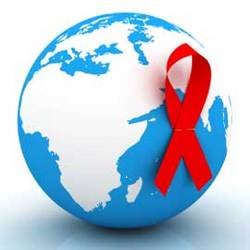 We pray that Mary, Mother of God, will ask her Son, Jesus, to assist us in responding to the worldwide AIDS crisis and to heal and/or cure those who are ill with the disease. And in gratitude for the many, many women and men who have dedicated themselves to fighting AIDS.
We pray that Mary, Mother of God, will ask her Son, Jesus, to assist us in responding to the worldwide AIDS crisis and to heal and/or cure those who are ill with the disease. And in gratitude for the many, many women and men who have dedicated themselves to fighting AIDS.
Obama’s new rules for Faith-Based Initiatives
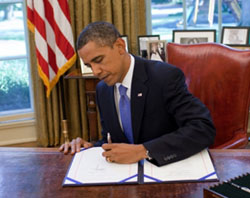 President Obama revised 2001 faith based initiatives established by President George W. Bush with “Fundamental Principles and Policymaking Criteria for Partnerships with Faith-Based and Other Neighborhood Organizations” on November 17, 2010.
President Obama revised 2001 faith based initiatives established by President George W. Bush with “Fundamental Principles and Policymaking Criteria for Partnerships with Faith-Based and Other Neighborhood Organizations” on November 17, 2010.
Continue reading Obama’s new rules for Faith-Based Initiatives
Vote: it’s necessary for Catholics
Just back from Mass for the Faithful Departed and from voting.
Have you prayed and voted???
Catholics vote because it is “… for the promotion of the common
good” (Benedict XVI)
Voting is a “… serious moral obligation…” and Catholics “…
can never vote for someone who favors absolutely what’s called the ‘right to
choice'” (Abp R. Burke)
Obama has a Catholic problem, big time
The other day the New York Times published a graph
showing, according to polls, that Catholic voters pose a serious problem for
tomorrow’s election. Interesting. The red bar demonstrates that a 24% lead for the
Republicans among US Catholics.
Remember, Catholics voted for Barack Obama, 54-44% in 2008. No poll
tells the whole truth and, in my are barely an indicator of what is really
thought by those polled. This poll is no different. However, if the pollsters
are remotely correct, Catholics could lead the way to change in the November 2
election from Democrat-to-Republican.
different in their voting patterns than the general public. Sad but true. And I
find this fact to be a disappointing fact. Discriminating who these Catholics
are as active (or non-active) is curious. The polls tell us that weekly
church-going Catholics in 2008 did not vote for Democrats, more or less.
Understanding Catholic faith & public life, no split necessary
Come to Jesus. There is no sensible reason why there has to be split in thinking and acting when it comes to saying you believe in Christ and follow His Church and being a serious voter or a politician. Today we hear politicians and sadly some clergymen, are not steadfast to the life and teaching of Jesus Christ. They are often working out of a pretext of religion without the substance of the Faith.
Supreme Court, Faith and Culture
Every time we get a new Supreme Court Justice nominee, I cringe because of the craziness that goes on at the confirmation hearings: it’s not only about philosophical attachments but political mud-raking gets too personal at times. Nonetheless, I’m interested to see how the various ideologies of left and right are daily worked out and the interplay of the culture wars, which haven’t changed all that much over the years: same ideas, different clothing. As always religion plays a role in our life: some commentators are too worried about the religious configuration of the US Supreme Court, and some seem not worried enough. Is there a middle ground? With the US President’s choice of Elena Kagan as a Supreme Court candidate we realize that there’s no Protestant on the bench but there are 6 Catholics of some type and 3 Jews, who also seem not to be too interested in practicing their faith. Exactly, what role does religion play today and are we approaching religion (the practice of faith) on its own terms, or are we reducing it to fit our image and likeness, our own warped standards? Have no fear, Monsignor Lorenzo Albacete helps to define our terms in this week’s Il Sussidiario.
President Obama’s nomination of Elena Kagan to be the next
Supreme Court Justice has opened up a new front in the cultural battle that
characterizes politics in the United States at the present time. Any observer
can write the script of what the response to her nomination will be like. In
fact, on this first day since the nomination the media has already defined the
different ideological positions involved in the struggle, and unless something
entirely unforeseen takes place, nothing new will be said between now and
sometime in July when the Senate votes for or against the nomination.
If the
nomination is approved, it will be the first time that there are no Protestants
in the Supreme Court. There will be six Catholic Judges and three Jewish,
including Kagan. It is difficult to imagine that many of the Catholic Senators
will be influenced in their vote by their Catholic faith, and the Jewish
Senators will almost be sure to insist that their judgment on the nomination
has nothing to do with faith.
But what exactly is the Catholic view on how
faith influences culture? The Christian claim is that faith is a way of knowing
reality. Faith and knowledge of what is real cannot be separated.
This view of
the relation between faith and knowledge has important consequences for our
understanding of the relation between faith and culture, because the culture in
which we live is built precisely on the separation between faith and knowledge
of reality.
In his magnificent book Beyond Consolation, John Waters puts it
this way:
“Our cultures, therefore, no longer affords us a way, in the
conventional public arena in which we spend so much of our time, of seeing
ourselves as we really are. Religion, the means by which we once achieved a
semantic accommodation with total reality, has been discredited by a pincer
movement between the reductions and abuses perpetuated in the name of religion,
and the opposing reaction from outside. One side claims the franchise for
redemption, the other victory over unreason… Stripped of their language of
absolute reality, our cultures begin to squeeze and oppress us in ways we are
incapable even of perceiving. What we have lost has been a loss to ourselves,
to our essential humanity, and yet we have been persuaded to read it as
liberation. We respond to invitations to celebrate our victory over traditions,
as though oblivious that we have half-sawn through the branch we are sitting
on…we have created for ourselves a culture that in many ways denies our
humanity.”
95th Anniversary of the Armenian Genocide
Today is the 95th anniversary of the Armenian genocide, beginning in present day Istanbul. This Great Crime lasted until 1923. This genocide is widely recognized as the first of the 20th century genocides from which humanity learned little from. No surprise that the Turkish government denies the genocide. It is estimated that about 1.5 million people were killed at the time of the First World War.

